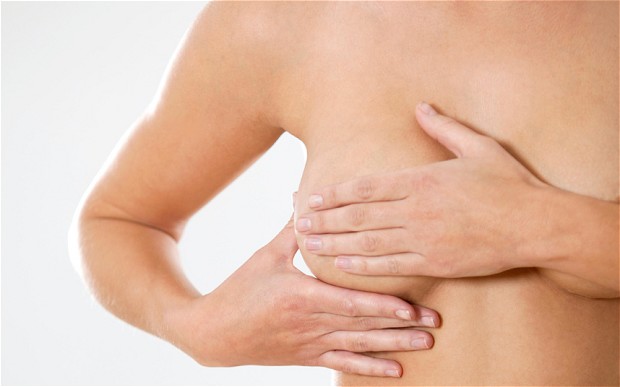Bad News Everyone, Breasts Age Faster Than The Rest Of A Woman's Body
If a new research, which uses DNA analysis of tissue and blood to measure the rate of cell decline, is to be believed then the breasts of women seem to age more quickly than the rest of their body.
Breasts typically age more quickly than the rest of the female body. Here's why.
As we age, the pattern of chemical markings on our DNA changes. Each gene becomes more or less methylated, that is, they have methyl chemical groups added or removed. This generally increases or decreases gene expression. The whole process is known as epigenetics.
newscientist.comNow, Steve Horvath at the University of California, Los Angeles, and his colleagues have used these changes to estimate a person's age. To do so, they took 7,844 healthy tissue samples from 51 different types of tissue, with participant age ranging from fetus to 101.
Then, they analyzed how methylation varied between site, allowing them to identify a subset of 353 regions of the genome that became either more or less methylated with age in almost all types of tissue.
newscientist.comIn turn, that can be flipped on its head to indicate the apparent age of tissue—a technique they validated against thousands of other samples.
The interesting upshot is that some parts of the body seem to age quicker than others.
Horvath says that, remarkably, their analysis shows that some parts of the body age at different rates. When they used their algorithm on healthy breast tissue from a group of women of average age 46, for example, it churned out a result that was on average two to three years older than the woman's actual age.
nydailynews.comWhereas in two groups aged 55 and 60 across both sexes, heart tissue appeared nine years younger than true age. If it is known where the sample comes from, it is still possible to accurately predict age after some straightforward adjustment, says Horvath.
However, in general, the algorithm is most accurate for samples from people under 30 years of age. "The older one gets, the less accurate it becomes," he says.
newscientist.comHorvath thinks that breast tissue ages more quickly because of its constant exposure to hormones. Heart tissue may remain younger, by contrast, because it is constantly regenerated by stem cells.
dailymail.co.ukFindings from the study showed that in women with breast cancer, the healthy tissue next to the tumor is typically 12 years older than the rest of the body.
The discovery shows that, in principle, scientists may be able to "rewind" the body's biological clock and set it to zero.
Looking at pluripotent stem cells - adult cells that are reprogrammed to an embryonic stem cell-like state - Prof. Horvath found that all stem cells are newborns. "More importantly," he says, "the process of transforming a person's cells into pluripotent stem cells resets the cells' clock to zero."
dailymail.co.ukProf. Horvath says that the most important question from his finding is whether or not the biological clock controls a mechanism that leads to aging. "If so," he says, "the clock will become an important biomarker for studying new therapeutic approaches to keeping us young."



